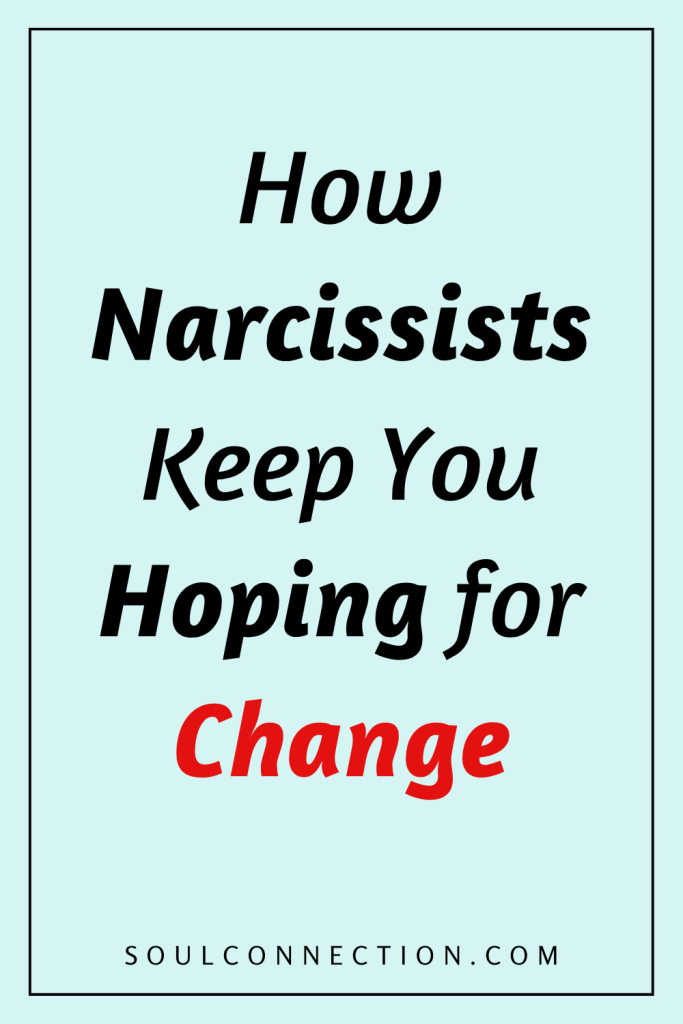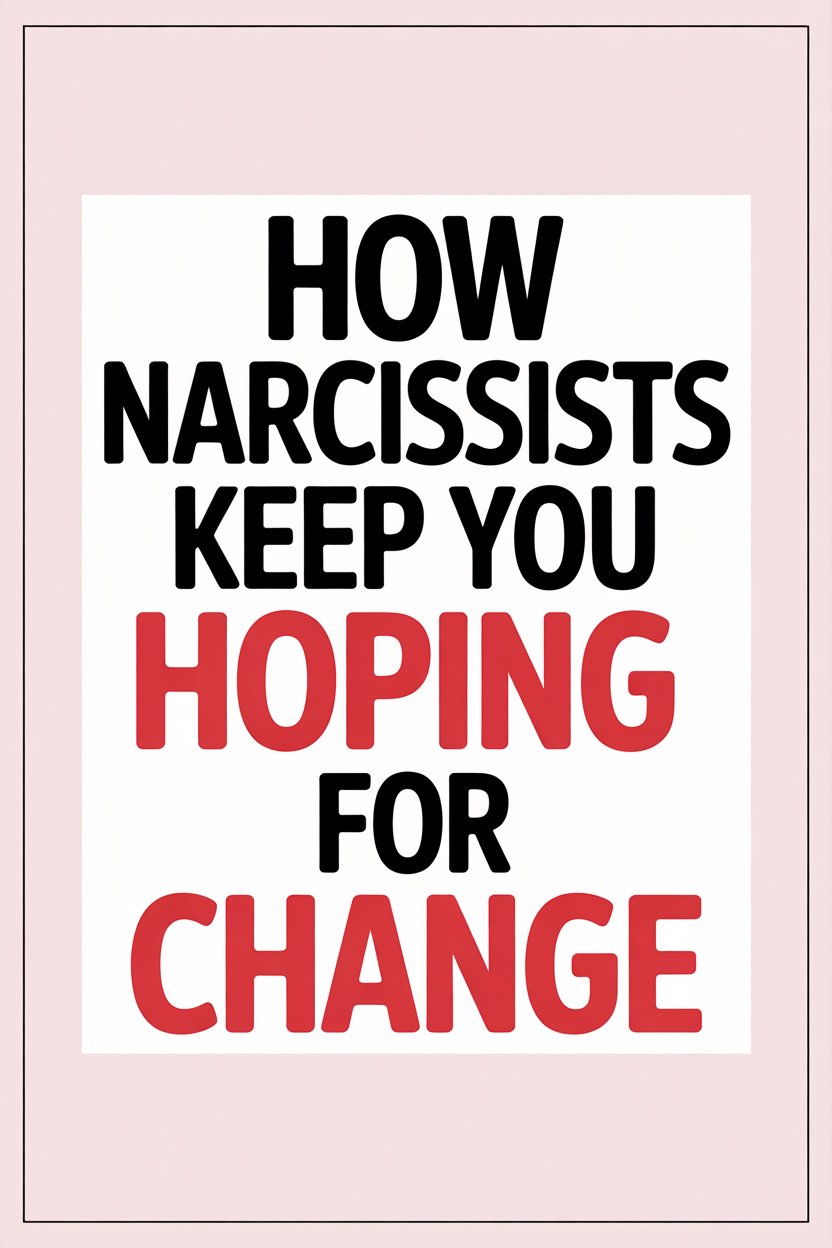If there were Olympic medals for keeping hope alive in doomed relationships, partners of narcissists would have more gold than Michael Phelps.
You might know the feeling: one day you’re sure they’ll finally listen, finally care—maybe even apologize without blaming your entire existence.
The next, you’re in a tailspin, wondering how you got here and why you’re still holding out for a glimmer of kindness that never quite arrives.
Pull up a metaphorical chair. It’s time to unpack why hope can be the stickiest trap of all when loving a narcissist.
The Love Bomb That Lingers
Every narcissist’s greatest trick? That intoxicating beginning. Flowers, compliments, late-night confessions of “never felt this way before.” It’s not just a honeymoon phase; it’s a full-on, box-set-worthy romance binge.
This early love bomb makes you believe you’ve finally found someone who truly sees and cherishes you. Your friends start asking if your feet ever touch the ground anymore.
Trouble is, that high is engineered—an expertly crafted performance, designed to hook you so deeply that when the mask slips, you’ll do anything to get that original version back.
The memory of those early days becomes your North Star, pulling you forward even when all the evidence says the ship has sailed. You cling to hope that the kind, generous person you met will return—any day now, surely.
Breadcrumbs and Mixed Messages
Narcissists aren’t total amateurs. They know how to string you along with just enough “maybe” to keep you in place.
A kind word after a fight, a sorry that arrives two weeks late, an occasional thoughtful gesture that makes you think, “See! They’re changing!”
These breadcrumbs are doled out with almost cruel precision. Each small crumb resets your hope-o-meter. Suddenly, the last month’s worth of cold shoulders or shouting matches don’t matter, because you’re focused on the minuscule positive.
It’s a psychological slot machine: every once in a while, the lever pays out. And like anyone at a casino at 3 a.m., you just know the next jackpot is right around the corner.
Shifting the Goalposts
Rules of engagement with a narcissist are about as fixed as a weather forecast in April. As soon as you think you’ve figured out what will make things better, the expectations change.
Was it keeping the house cleaner? Laughing at their jokes harder? Not talking to that one friend? Each time you meet a demand, you’re rewarded with a fleeting moment of approval, then—bam!—the rules change.
Suddenly you’re chasing a new, elusive target.
The constant shifting keeps you hoping that if you just get it right this time, lasting change will follow. Spoiler alert: it won’t. The goalposts move because that’s how control is maintained—and how your hope stays alive.
Grand Promises and Future Fakes
No one paints a brighter tomorrow than a narcissist in the hot seat. During conflict, or when you finally threaten to leave, suddenly they see the light.
They swear they’ll go to therapy, quit the bad habits, put you first (right after this next work project).
These grand promises are rarely about real change. They serve as a pressure-release valve, buying more time and keeping you emotionally invested.
The dream of a better future is hard to let go—especially when you’ve built so much of your emotional life around the idea that things could improve.
Months later, you’ll realize that the only thing changing is the excuse for why it hasn’t happened yet.
Gaslighting and Self-Doubt
If you leave every conversation feeling a little less certain of your own memory, congratulations: you’re being gaslit. Narcissists excel at twisting reality until you question your judgment, your feelings, even your sanity.
Mistakes? You misremembered. Hurt feelings? You’re too sensitive. That thing they promised last week? It never happened (except it did, but now you’re not so sure).
Self-doubt is the breeding ground for hope. If you can’t trust your own perceptions, you’re more likely to keep believing that change is possible—if only you’d try harder, act nicer, or stop rocking the boat.
The Sunk Cost Fallacy
Ever held onto a truly ugly sweater just because you once paid good money for it? Relationships with narcissists work similarly. After months or years of emotional investment, hope becomes a way to justify staying.
“Maybe this time, all my effort will pay off. I can’t quit now—I’ve come too far.”
This is the sunk cost fallacy at work. The more you’ve sacrificed, the harder it becomes to leave, because admitting it won’t change means admitting all the pain was for nothing.
And nobody wants to feel they’ve wasted their time, heart, or hope.
Isolation and Echo Chambers
Narcissists have a special talent for shrinking your social circle.
Over time, you might find your friends, family, and support networks have faded into the background—sometimes because the narcissist engineered it, sometimes because you got tired of explaining things that never get better.
With fewer outside perspectives, it gets easier to swallow their version of reality. Your own desires and instincts get quieter, while the voice telling you to keep hoping gets louder.
Isolation is like Miracle-Gro for misplaced optimism.
The Occasional Apology
Every now and then, just as you’re mentally packing your bags, an apology arrives. Suddenly, it’s all tears, vulnerability, and promises to do better.
These rare glimpses of remorse keep hope alive. “Maybe this time it’s real,” you think. The reality? The apology is often just enough to keep you from leaving, not enough to inspire lasting change.
It’s a cunning move. And it works—because everyone wants to believe that people can grow.
The Role of Empathy (Yours, Not Theirs)
You’re kind. You’re patient. You want to believe the best in people, because that’s who you are—not because you’re naïve.
Narcissists thrive on your empathy. They know you’ll look for the good, rationalize the bad, and forgive more than most. They know you’ll hope, because you care deeply. And they use it—sometimes unconsciously, often not.
Your empathy is a beautiful thing, but in the wrong hands, it can be weaponized against you.
Societal Myths and the “Fixer” Fantasy
Every romcom and half-baked relationship “expert” has told you that love conquers all. Work hard, love harder, and the troubled partner will finally see the light.
Only, this isn’t a movie, and you’re not Julia Roberts with a conveniently-timed life lesson.
Society idolizes the idea that perseverance equals payoff. The reality with narcissists is that waiting for them to change is like tending a cactus and expecting roses.
You can water it, talk to it, even play it love songs—it’ll still be prickly.
What To Do With All That Hope
Letting go of hope isn’t easy—especially when it has become your relationship’s bedrock. But here’s the thing: hope is only healthy when it’s paired with reality.
Take stock of the patterns, not the promises. Look at actions, not words. Challenge yourself to imagine a future where nothing changes—could you be happy then?
If not, it might be time to redirect your hope towards yourself and the life you deserve, rather than the person you wish your partner would become.
Changing someone else, especially a narcissist, is about as reliable as a weather forecast from an astrologer. Changing your own choices? That’s where your real power lies.
Hope Isn’t a Relationship Plan
Love’s greatest trick is its ability to keep us hanging on, waiting, believing. It’s human, and it speaks to your strength, not your weakness.
But hope, on its own, won’t transform a narcissist any more than waiting will turn your pet goldfish into a Labradoodle. The path forward lies in seeing things as they are, not as you wish they would be.
You deserve more than breadcrumbs and broken promises.
And once you reclaim hope for yourself, you might just find that change—real, lasting, soul-satisfying change—was always in your hands.


